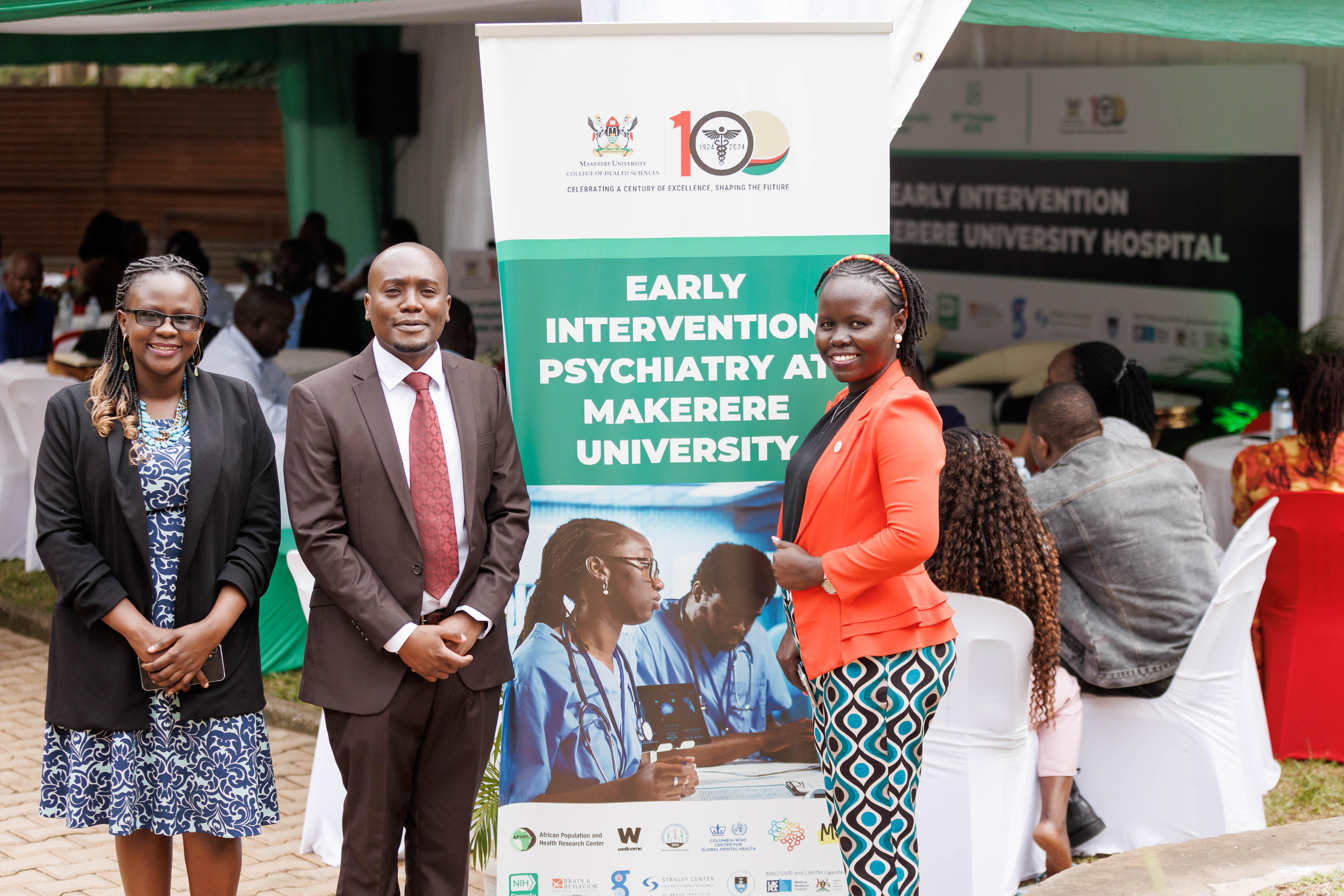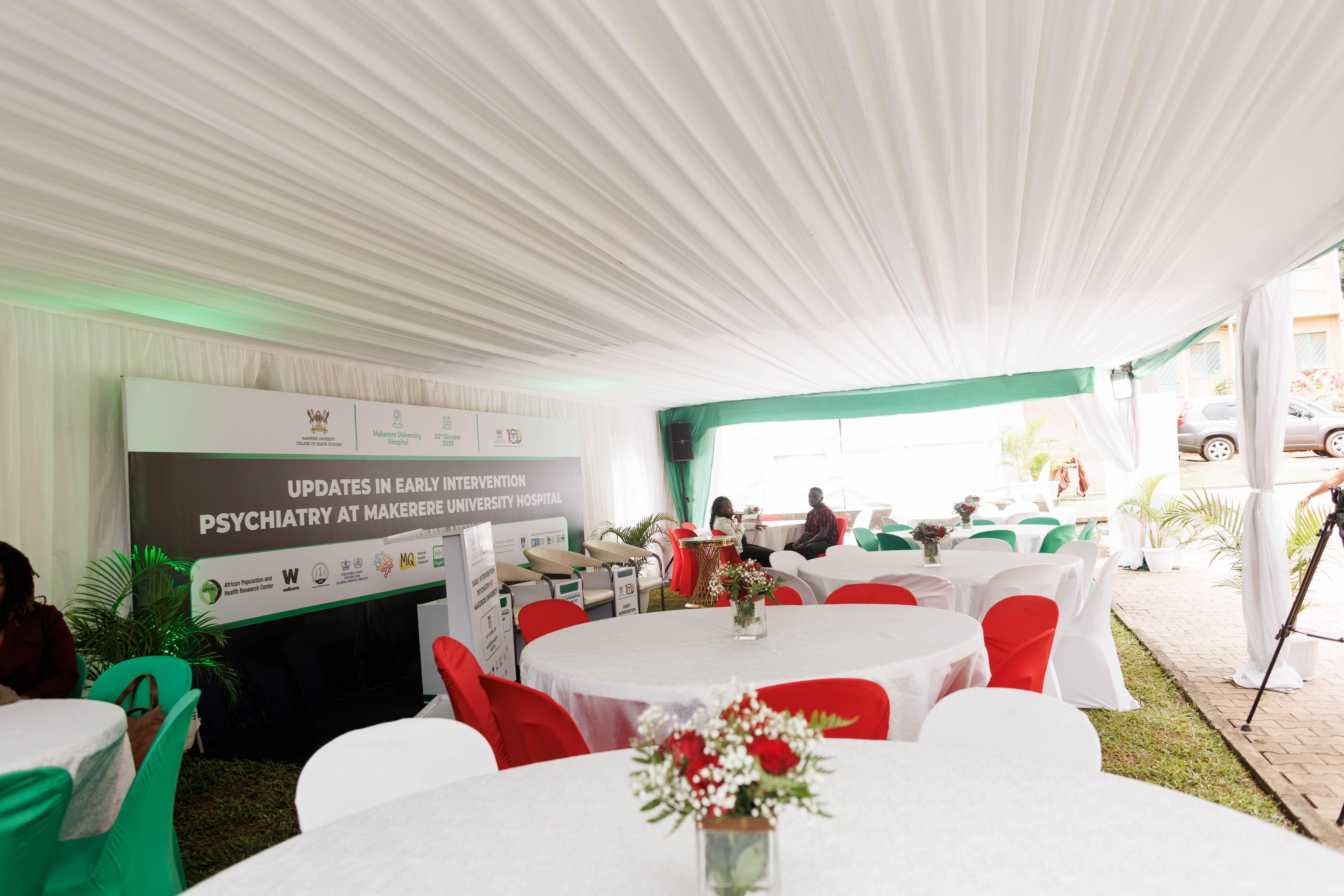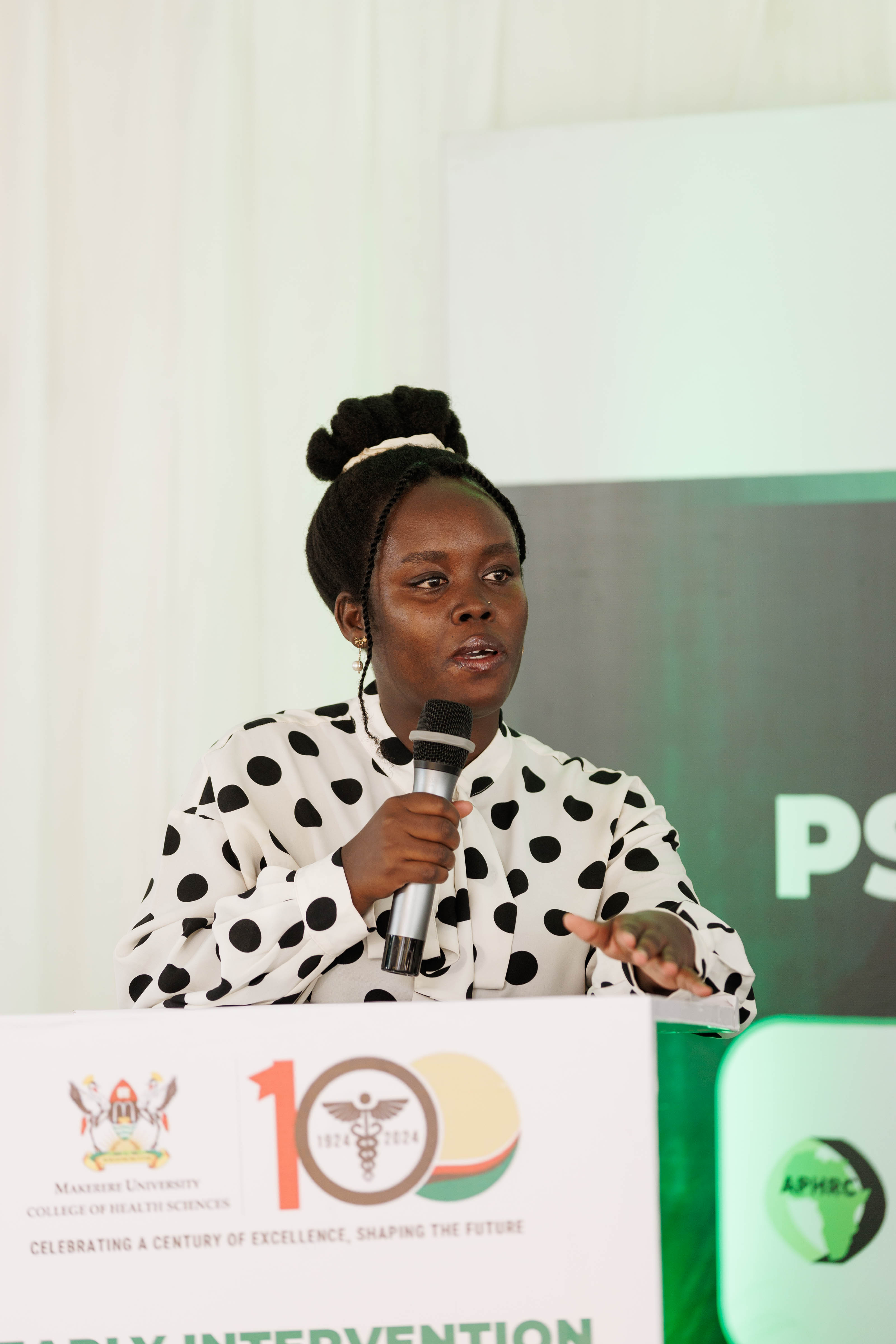On 30 October 2025, the Department of Psychiatry at Makerere University, together with its clinical partner, Makerere University Hospital, publicly launched the Early Intervention Psychiatry Services (EIPS) clinic, a landmark initiative intended to reshape how psychosis and other serious mental-health conditions are treated in Uganda.
The launch was attended by a broad coalition of stakeholders. From the Makerere University department of Psychiatry, faculty and students gathered under the leadership of Dr Dickens Akena, the Head of Department. Hospital staff joined the event, led by the Hospital Director, Professor Josaphat Byamugisha. The core operational team of the clinic, the psychosis working group, was present, led by the Principal Investigator, Dr Emmanuel Kiiza Mwesiga. Equally significant were the lived-experience experts (people who have attended the clinic and benefitted from its services) whose presence underscored the patient-centred ethos of the programme.
The EIPS clinic, which began operating in June 2024, offers community-based early psychosis intervention for first-episode cases as well as general mental-health services for Makerere University students. The clinic is staffed by a dedicated multidisciplinary team of three psychiatrists, two nurses, a psychologist, and one laboratory personnel. Services are available on Monday, Tuesday and Thursday, and include clinical assessment and diagnosis, laboratory investigations, psychological interventions, pharmacological treatment, and long-term follow-up care. Plans are underway to broaden the scope of service, with social-intervention components being developed for future implementation.
A wide array of sponsors has backed the initiative: Wellcome Trust, African Population and Health Research Center, Uganda Society for Health Scientists, MQ Mental Health Research, Brain & Behaviour Research Foundation, Stanley Center for Psychiatric Research at the Broad Institute, the University of Cape Town, the MRC/UVRI & LSHTM Uganda Research Unit. Such wide international engagement underscores the relevance and urgency of early-intervention psychiatry in low- and middle-income settings.
At the launch event, Professor Akena stressed the importance of early treatment. He said, “The longer somebody stays with mental disorders … that are not treated, the worse the prognosis becomes.”
Dr Mwesiga drove the point home with hard data, “On average, patients take 8-10 years before they reach a mental-health professional. They go to physicians, paediatricians, surgeons, traditional healers, etc. We needed to find a way to find patients early and manage them.”
In his remarks, Professor Byamugisha expressed the hospital’s intent, “We want to reach people at a stage where treatment is easier… Let’s see how we can help more people live better mental-health lives.”
This launch marks a significant milestone, not simply for Makerere’s psychiatry programme, but for Uganda’s journey toward accessible, evidence-based mental‐health care. The EIPS clinic stands out for its dual mission: capturing early psychosis cases (when intervention has the highest potential for impact) and meeting the mental-health needs of the university student community (where demand is growing, and lag times are long). The multidisciplinary model, weekly clinic schedule and long‐term follow‐up pathways all reinforce a shift from reactive to proactive psychiatric care.
As the clinic grows, key challenges will remain: sustaining funding, integrating with community-based supports, scaling up outreach so first‐episode cases are identified earlier, and ensuring that social interventions (which the programme plans to launch) catch up with clinical services. But the launch signals that meaningful action is underway. For the staff, students, and community served, the message is clear: mental disorders are not simply to be managed; they can, and should, be intervened upon early.



